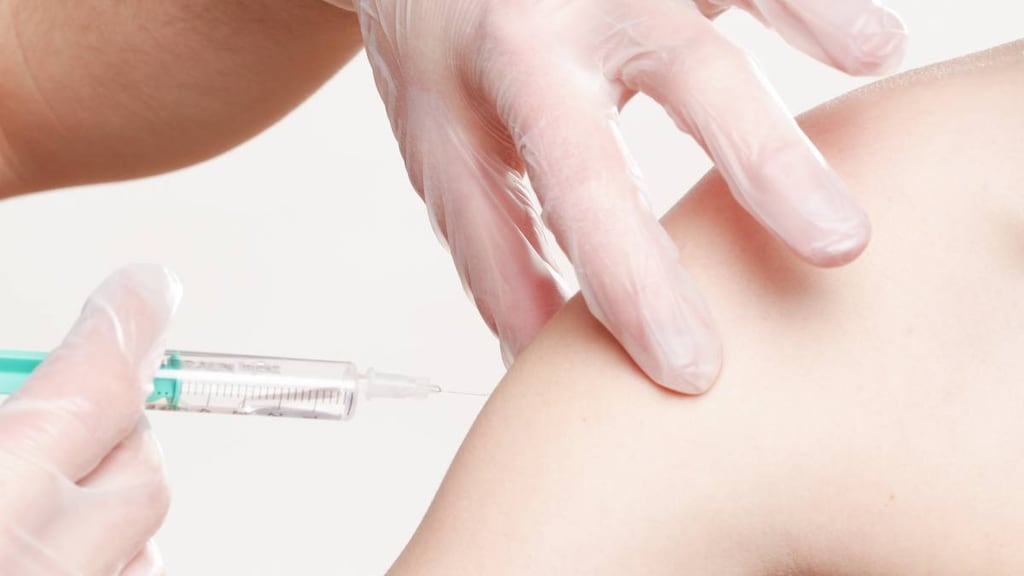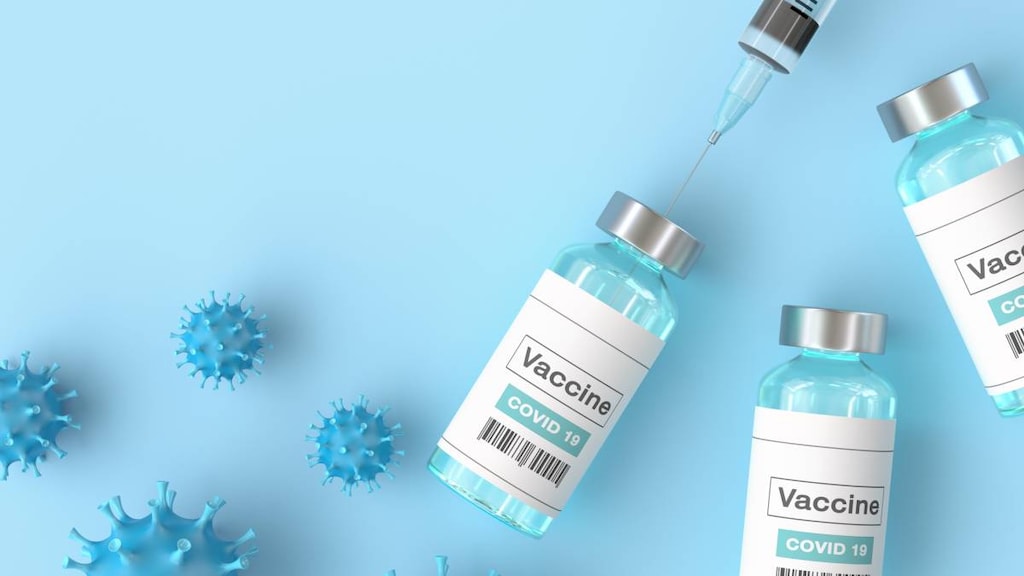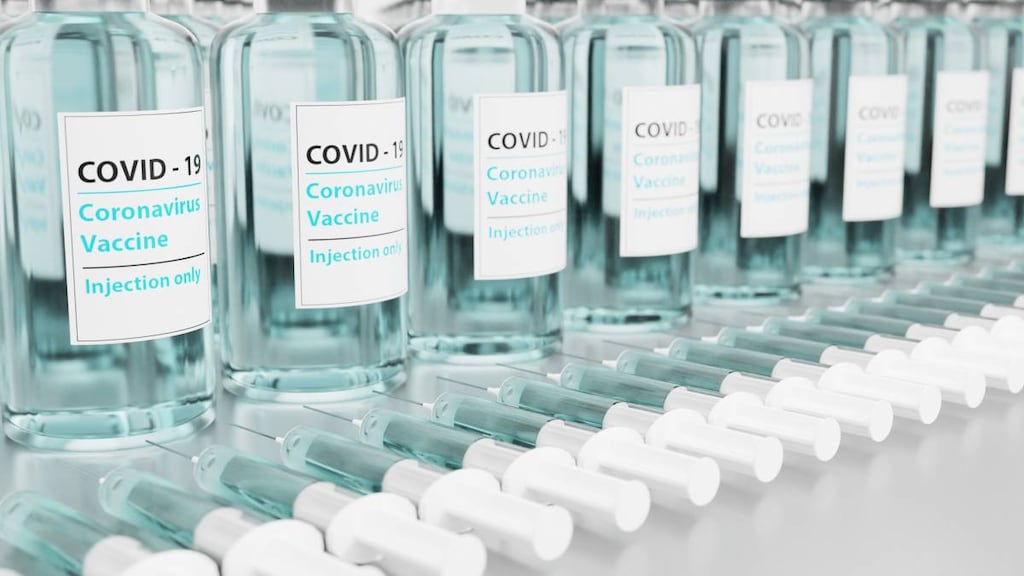Moderna’s 'positive' SARS-CoV-2 vaccine data raises more questions than answers

Moderna announced 'positive' interim phase I data for its SARS-CoV-2 vaccine, mRNA-1273, on May 18, 2020, but questions were immediately raised about the quality of the information the company provided. An investigation was initiated the next day on behalf of investors over concerns the company may have engaged in fraud, negligence or other unlawful business practices.
Moderna is developing mRNA-1273, a novel lipid-nanoparticle (LNP)-encapsulated mRNA-based vaccine for the prevention of COVID-19. It encodes for the full-length, pre-fusion stabilized S (spike) protein of SARS-CoV-2.
What to know about Moderna’s phase I trial of mRNA-1273
Moderna initiated a US phase I trial of mRNA-1273 in collaboration with the National Institute of Allergy and Infectious Diseases (NIAID) in March 2020. The vaccine’s development is being funded by a $US483m grant from the US Biomedical Advanced Research and Development Authority (BARDA).
The phase I trial is designed to evaluate the vaccine’s safety, reactogenicity (a subset of expected/common adverse events) and immunogenicity, otherwise known as its ability to cause an immune response. The vaccine is administered via intramuscular injection in the deltoid muscle at the top of the arm.
The trial was originally planned to enroll a total of 45 healthy volunteers (aged 18-55 years of age) to receive either a 25mcg, 100mcg or 250mcg dose of mRNA-1273 on day 1 and 29 of the trial. The first subjects were administered their initial dose of the vaccine on March 16, 2020. All subjects have follow-up visits on days 8, 15, 29, 36, 43 and 57 after their initial vaccination, and on days 119, 209 and 394 after their second (booster) dose of the vaccine.
On April 16, 2020, Moderna reported that the trial protocol had been changed to include 30 subjects aged from 56 -70 years of age and an additional 30 subjects aged 71 years and older. Enrollment of these subjects was underway at that time.
The trial is assessing both the frequency and severity of adverse events in the subjects over the 394 day course. It is also assessing the immunogenicity of the mRNA-1273, which is measured by immunoglobulin G (IgG) enzyme-linked immunosorbent assay (ELISA) to the SARS-CoV-2 S protein on day 57, after the subjects have received 2 doses of the vaccine. A 4-fold change in antibody levels from baseline is reported to be necessary to confirm seroconversion (detectable levels of antibodies against SARS-CoV-2 in the blood).
People who had been diagnosed with COVID-19 were not eligible to join the trial, but according to the available trial protocol it is not clear that any testing was done at the beginning of the trial to assess whether the volunteers had been unknowingly infected with the new coronavirus.
What interim phase I data did Moderna announce?
Moderna has announced interim results from the 45 subjects in the 18-55 years old age bracket. No results from older subjects have been reported. The results cover data up to day 43 for the 30 subjects aged 18-55 year olds who have received two doses of the vaccine. However, they only include data up to day 29 for the 15 subjects in the 250mcg group.
Moderna has reported that among the patients aged 18-55 years of age:
Safety data
-
mRNA-1273 was generally safe and well tolerated. All adverse events were transient and did not require treatment
-
1 of the 15 subjects in the 100mcg dose group experienced grade 3 redness (erythema) around the injection site. Grade 3 adverse events are severe or medically significant, but not life threatening.
-
3 of the 15 subjects in the 250mcg group experienced grade 3 systemic symptoms following their booster dose of the vaccine.
Immunogenicity data
-
Immunogenicity, the immune response observed in the subjects, was dose-dependent and increased as the vaccine dose increased. It was measured by IgG ELISA (enzyme-linked immunosorbent assay). Immunogenicity also increased following both the initial dose and the booster dose in the 25mcg and 100mcg groups. Immunogenicity data was not yet available for the 250mcg group.
-
All 45 subjects seroconverted by day 15 following their initial dose of mRNA-1273, meaning that they started producing binding antibodies targeting the virus.
-
On day 43, the levels of binding antibodies observed in the blood of the subjects in the 25mcg group were at the same level as those observed in blood samples (convalescent sera) from people who have recovered from COVID-19.
-
On day 43, the levels of binding antibodies observed in the blood of the subjects in the 100mcg group significantly exceeded the levels seen in convalescent sera.
Neutralizing antibody data
-
Vaccination with mRNA-1273 elicited neutralizing antibodies, which don’t just bind to a target enabling the immune system to identify it, but neutralize the target themselves. Neutralizing antibodies were measured by PRNT (plaque reduction neutralization) assays against live SARS-CoV-2.
-
Neutralizing antibody data was only available for 8 of the 45 subjects and included the first 4 subjects in both the 25mcg and 100mcg groups.
-
All 8 subjects developed neutralizing antibodies by day 43, which were at or above the levels seen in convalescent sera.
Questions asked about Moderna’s interim phase I results
Experts have been quick to point out that Moderna has not provided enough information for people to tell for themselves if the results are positive or not. It is also unusual that Moderna made the announcement on its own and no comment about the data has been made by its partner, the National Institute of Health’s NIAID.
Questions are being raised because:
- It’s not clear why neutralizing antibody data were only reported for 8 of the trial subjects and not the other 37. Specific details about the 8 subjects were also missing, including what ages they were
-
We have no way of knowing if the neutralizing antibody response will be durable and last for any length of time
-
Neutralizing antibody levels were reported to be generally the same or better than those observed in patients who had recovered from COVID-19, but we don’t really know what this actually means. Based on the available data from a trial conducted in 175 patients with COVID-19 in China, we know that antibody levels vary widely among recovered patients, which makes it difficult to interpret Moderna’s data. Of the 175 recovered patients in the Chinese trial, 10 did not have any detectable neutralizing antibodies, while others had very high antibody levels.
-
The trial protocol available on clinicaltrials.gov makes no mention of using a PRNT assay to evaluate neutralizing antibodies in the trial subjects. Trials are usually designed from the outset to measure certain outcomes or endpoints. The primary endpoints for this trial related to the safety and reactogenicity of mRNA-1273, while the secondary endpoint of the study only mentions using ELISA to evaluate the immunogenicity of the vaccine.
-
Moderna has not published results in journals so that they can be reviewed by other experts, as is usual during the development of new therapeutics.
-
While it’s not unusual for interim data to be released, Moderna chose to release 43 day immunogenicity data instead of waiting for the final collection of this data which takes place on day 57, a point that some of the subjects had already reached.
Moderna also announced findings from a preclinical trial
Moderna also announced results from a preclinical trial in which mRNA-1273 is reported to have prevented replication of the virus in the lungs of mice exposed to SARS-CoV-2. The levels of neutralizing antibodies that provided protection against SARS-CoV-2 in the mouse model were reported to be consistent with the levels observed in the 8 subjects in the phase I trial.
What’s next for Moderna and mRNA-based SARS-CoV-2 vaccines?
Monderna now intends to accelerate its development plans and will begin a phase II trial of mRNA-1273 in the second quarter of 2020, before being a phase III trial in July 2020.
The phase II trial is expected to enroll 300 subjects aged 18-55 years old and another 300 subjects aged 55 years and over. This trial will also assess the safety, reactogenicity and immunogenicity of the vaccine. Subjects will receive two doses of a placebo, mRNA-1273 50mcg or mRNA-1273 100mcg given 28 days apart.
Moderna is not the only company developing an mRNA-based vaccine against SARS-CoV-2. CureVac, a german biophamaceutial company, is also developing an mRNA-based vaccine and recently reported positive preclinical results. CureVac hit the headlines in March, when President Trump was reported to have tried to secure exclusive rights to its vaccine.
Article references
- Moderna. Moderna Announces Positive Interim Phase 1 Data for its mRNA Vaccine (mRNA-1273) Against Novel Coronavirus. May 18, 2020. Available at: https://investors.modernatx.com/news-releases/news-release-details/moderna-announces-positive-interim-phase-1-data-its-mrna-vaccine. [Accessed May 22, 2020].
- Moderna. Novel Coronavirus Vaccine (mRNA-1273) Positive Interim Phase 1 Data. May 18, 2020. Available at: https://investors.modernatx.com/static-files/2adbe91d-8eb4-4600-ae1d-020f129ab21c. [Accessed May 18, 2020].
- John Carroll (May, 20, 2020). Looking at the $MRNA backlash today. Are we ready for the anti-backlash backlash? It's 8 people and antibody levels - a snapshot of the earliest possible results. Normal vax development takes years. A quick success in the fall will be questionable. So would a vaccine next year. [Twitter POST]. Retrieved from: https://twitter.com/JohnCendpts/status/1262864814977675264?s=20.
- CNBC. May 19, 2020. Moderna raises eyebrows with stock offering ahead of STAT News report. Retrieved from: https://www.youtube.com/watch?v=nPgm1nfH1HQ&feature=youtu.be. [Accessed May 22, 2020].
- Businesswire. MODERNA INVESTIGATION INITIATED by Former Louisiana Attorney General: Kahn Swick & Foti, LLC Investigates Claims On Behalf of Investors of Moderna, Inc. - MRNA. May 19, 2020. https://www.businesswire.com/news/home/20200519006005/en/MODERNA-INVESTIGATION-INITIATED-Louisiana-Attorney-General-Kahn. [Accessed May 22, 2020].
- STAT News. Vaccine experts say Moderna didn’t produce data critical to assessing Covid-19 vaccine. May 19, 2020. Available at: https://www.statnews.com/2020/05/19/vaccine-experts-say-moderna-didnt-produce-data-critical-to-assessing-covid-19-vaccine/. [Accessed May 22, 2020].
- ClinicalTrials.gov. Safety and Immunogenicity Study of 2019-nCoV Vaccine (mRNA-1273) for Prophylaxis of SARS-CoV-2 Infection (COVID-19). Available at: https://clinicaltrials.gov/ct2/show/NCT04283461?cond=mrna-1273&draw=2&rank=1. [Accessed May 22, 2020].
- Moderna. Moderna Announces Award from U.S. Government Agency BARDA for up to $483 Million to Accelerate Development of mRNA Vaccine (mRNA-1273) Against Novel Coronavirus. April 16, 2020. Available at: https://investors.modernatx.com/news-releases/news-release-details/moderna-announces-award-us-government-agency-barda-483-million. [Accessed May 22, 2020].
- Wu F, Wang A, Liu M, et al. Neutralizing antibody responses to SARS-CoV-2 in a COVID-19 recovered patient cohort and their implications. medRxiv preprint. doi: https://doi.org/10.1101/2020.03.30.20047365. [Accessed May 22, 2020].
- CureVac. CureVac´s Optimized mRNA Platform Provides Positive Pre-Clinical Results at Low Dose for Coronavirus Vaccine Candidate. May 14, 2020. Available at: https://www.curevac.com/news/curevac-s-optimized-mrna-platform-provides-positive-pre-clinical-results-at-low-dose-for-coronavirus-vaccine-candidate. [Accessed May 22, 2020].




